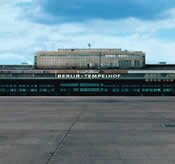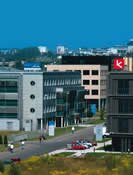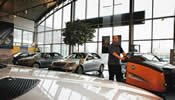Inflight Magazine of Brussels Airlines
Welcome to the Inflight Magazine of Brussels Airlines
Business trends
Boyd Farrow rounds up what’s happening in the business world across Europe
IMAGE PHOTOLIBRARY.COM, ALAMY, REX FEATURES
 Networking no-nos
Networking no-nos
Facebook checks are off limits for Germany’s would-be employers
German jobseekers who have any dodgy photos or risqué admissions on their Facebook page can relax – a new law passed in Berlin will make it illegal for prospective bosses to check up on potential employees on social networking sites.
According to Careerbuilder.com, around 45% of employers use social networking sites to research jobseekers, and some 35% have rejected candidates based on what they discovered – such as inappropriate photos, claims about previous employers, racist comments, boasts about drug use and lies about qualifications. But while Germany’s interior minister Thomas de Maizière has clamped down on the privacy of such data, the new law will still allow potential employers to look at sites that are expressly intended to help people sell themselves to employers, such as the business-oriented networking site LinkedIn. Information that is generally available on the internet is also considered fair game, so employers can Google potential hires. Companies may not, however, be allowed to use information if it is too old or if the candidate has no control over it.
The draft legislation also covers the issue of companies spying on employees. Video cameras will only be permitted where they are justified, such as entrance areas, and staff will have to be made aware of their presence. Similarly, companies will only be able to monitor employees’ telephone calls and emails under certain conditions, and will be obliged to inform their staff about such eavesdropping.
 Sweden’s shopaholics
Sweden’s shopaholics
Foreign visitors flock to the country to splash out on cut-price goods
The Swedish Trade Federation, Svensk Handel, has reported that last year was a bumper year for tourism, with foreign tourists spending more money when visiting the country than Swedish tourists spent overseas.
Foreign visitors shelled out €10bn/SEK 93.6bn on goods and services in Sweden in 2009, eclipsing the total value that iron, steel and Swedish private cars brought in to the country. Indeed, the number of overnight stays by foreigners in Sweden was up by 3% in 2009, despite the fact that global travel declined as a result of the financial downturn.
Yvonne Ingman, vice-CEO of Svensk Handel, explained that it is primarily “shopping tourists” from Germany, Poland and Sweden’s Nordic neighbours who are coming to the country, and that they’re spending huge amounts on cut-price Swedish goods. “In Sweden there is the Kingdom of Crystal (Glasriket), the Kingdom of Furniture (Möbelriket) and the Kingdom of Cloth (Tygriket),” she said. “Souvenirs are no longer crystal vases and Dala horses.” She added that “regular tourist shopping” is also buoyant.
 Mass marketing
Mass marketing
Advertising posters in St Peter’s Square during restoration project
Anyone planning on visiting Vatican City during the next three-and-a-half years would be advised to wear a hard hat – all 284 of the 17th-century columns in St Peter’s Square in Rome are to be spruced up in a major restoration project. Renato Boccardo, secretary-general of the Vatican’s governing commission, says the work will take in the entire square, at an estimated cost of €10m-€20m. The bill will be footed entirely by private sponsors, which will be allowed to put up adverts in return. Boccardo says any posters will be very discreet, “and every single sponsor will be screened and discussed because they must respect this holy place, the symbol of the Catholic Church’s great embrace of all humanity.” Italian telecoms company Wind and the power giant ENEL have already been announced, while Romans wait to see if Starbucks or McDonald’s will emerge as co-sponsors, or – something that would be even more offensive to many – any of Silvio Berlusconi’s TV shows.
During the project, workers will use the latest technology to try to avoid blocking the piazza, installing a gantry on the colonnade cover that will be invisible from the ground. Vatican Museums director Antonio Paolucci told the Vatican daily Osservatore Romano earlier this month that work will include controlling rainwater flow, removing older restorations, eliminating sulphur deposits and giving the columns protective treatment.
 Up in smoke?
Up in smoke?
Greek businesses fear loss of earnings from smoking ban
Beware Greeks bearing ashtrays – the country now has a blanket ban on smoking in all indoor public areas, with stiff fines for transgressors.
The responsibility for enforcing the rule is in the hands of the police, social services and, bizarrely, the coast guard. The ban applies equally to workplaces and recreational venues, with special smoking areas in casinos and large music venues only, where there’ll be an eight-month transitional period. Individuals that flout the ban face fines ranging from €50-€500, while owners of companies found to be tolerating smoking can be fined €500-€10,000. Naturally, restaurateurs and club owners have objected, claiming the ban will be a further knock to a sector already struggling to cope with a decline in turnover of as much as 25%. After a fourth offence, businesses would be temporarily closed for 10 days, after which their licence would be permanently revoked. In an Athens press conference, the health minister clarified that the fines were originally going to be twice their current value, but the government had decided that lower fines would be easier to enforce.
 The root of the problem
The root of the problem
North Korea attempts to pay debt to Czech Republic with ginseng
In one of the most bizarre business stories of the year, it has emerged that North Korea offered the Czech Republic a supply of ginseng – the oriental root thought to be beneficial to health – in return for wiping out a €7.5m/CZK 186m debt from a late 1980s deal for trucks, trams and heavy machinery.
Radek Ležatka, a spokesman for the Czech Finance Ministry, recently confirmed to The Prague Post that, “Representatives of the Democratic People’s Republic of Korea came with an official proposal to forgive 95% of the debt.” Ležatka said the ministry found this proposal “unacceptable”, and ministry officials offered the cash- strapped Koreans the option to pay the debt in goods such as zinc ore rather than hard currency. Less formal talks followed, and North Korean officials apparently suggested making part of their payment in ginseng, a plant that grows naturally in cooler Asian climates and is now a common ingredient in energy drinks or an additive in green tea.
Perhaps the Czechs were a tad hasty in their refusal, though: according to a new report by Euromonitor International, the CEE region registered a 17% increase in sales of health and wellness products in the past five years, and the Czech Republic pulled even further into the lead, with the segment growing 23.4% since 2009. The biggest beneficiaries are supermarket chains such as Tesco, DM and Albert. Tesco expects the launch of new products from local suppliers in October will help it to gain a bigger share in a marketplace, estimated to be worth €1.2bn in 2009 according to Euromonitor. That’s a lot of trucks and trams.
 Flights of fancy
Flights of fancy
Finalists chosen in redesign bid for Berlin airport
Berlin city officials have at last unveiled the finalists in a landscape design competition to decide the future of historic Tempelhof Airport, which was closed in October 2008. In the two years since the vast terminal was shut, hundreds of proposals have flooded in, ranging from the prosaic – such as apartment blocks, public parks and sports grounds – to the insane, such as erecting a Matterhorn-like mountain or a gigantic red-light district.
Six ideas have now been selected by the city, narrowed down from 78 entries, with most of the plans utilising the existing layout of the airport – one of the conditions was that designers retain the runways and other historical features, including the terminal. The general public will get the opportunity to debate the plans, and the finalists will get a chance to refine their work before the judging in December.
Oddly, though, the plan that seems to be generating the most excitement in the German press doesn’t even number among the six finalists. Berlin-based scientists Martin Brosch and Sybe Izaak Rispens want to turn the area into a large lake – a scheme they say that will cost just €230m using the city’s “freshwater floor”. As well as many other environmental benefits, the pair say the lake would have a spectacular modern wind turbine at its centre.
 Park life
Park life
Polish science and technology parks receive EU boost
A growing number of science and technology parks are springing up around Warsaw, Krakow and other Polish cities, benefiting from EU funds set aside for innovation and new technology. At the end of last year there were 47 such parks in the country, with a total of 583 businesses and a combined work force of more than 17,000. Compared with 2007, the number of businesses grew by 61% and employment soared by 86%, according to a new report published by the Polish Business and Innovation Centres Association.
Some €162m/PLN 650m was invested in the development of the parks to the end of last year, with most of the funds coming from the EU, according to the report. Many parks run business incubators that offer preferential treatment to start-ups in modern business sectors. Each business incubator contributed to starting up seven businesses on average last year, many set up by students.
And the parks can expect to receive more funds in the next few years, according to the report; the EU has set aside a total of €150m for investment in such projects by 2013 under its Innovative Economy Operational Program. Most of the money will be spent on infrastructure such as buildings, roads and utilities.
 Tidy profits
Tidy profits
Copenhagen cleaning firm becomes world’s fourth largest company
After a company floats, it often follows that it sheds staff as new shareholders demand to see immediate efficiencies. So it was no doubt a bittersweet moment for some when it was announced that Copenhagen-based cleaning and facility services firm ISS had officially become the world’s fourth largest company in terms of the number of employees.
The 109-year-old firm now has a total of 525,000 employees – cleaning offices, cooking school meals, guarding buildings and operating call centres in 51 countries – and thereby moves into the big league, fourth after Tesco, Wall Mart and Group Four Securicor. And sure enough, at the end of August, ISS said it was considering an initial public offering, which analysts say could value the group, now owned by Goldman Sachs Capital Partners and Sweden’s EQT Partner, at nearly €5.3bn/DKK 40bn.
This comes soon after a flotation in Copenhagen by food ingredients maker Chr Hansen – also owned by a private equity firm, PAI Partners – which was the stock exchange’s first major listing in years. Analysts now expect many other big European companies owned by private equity firms to change hands or return to public markets, as their owners seek to cash in on long-held investments.
 It’s not rocket science
It’s not rocket science
Chief scientific advisor role remains unfilled six months on
The European job market may be tough, but it appears that there’s one position nobody is in a hurry to fill. Back in March, president of the European Commission José Manuel Barroso announced plans to recruit a super scientist to offer advice on controversial issues, including climate change and genetically-modified food. However the EU executive has yet to appoint this chief scientific advisor – who would earn around €200,000 a year – because no one can agree if the role would be independent of political institutions, or would merely be one of many counsellors to the Commission president.
The latter scenario now appears more likely, and it’s probable that the scientist will be given an office in the Commission’s Berlaymont building in Brussels, reporting directly to the EC president. Although the job has yet to be advertised, anyone with “appropriate professional experience of at least 15 years” who could manage on a salary of between €14,672 and €16,600 per month – and who’s keen to shy away from controversy – would be well advised to discreetly contact Barroso.
Leave a Reply
